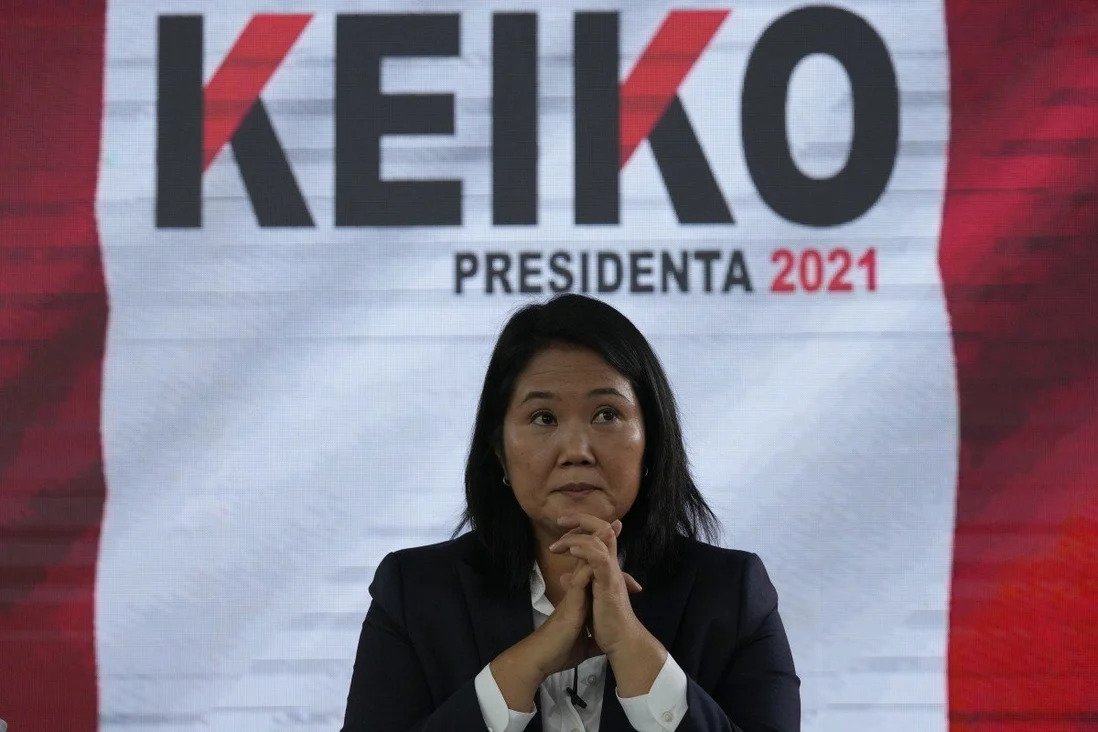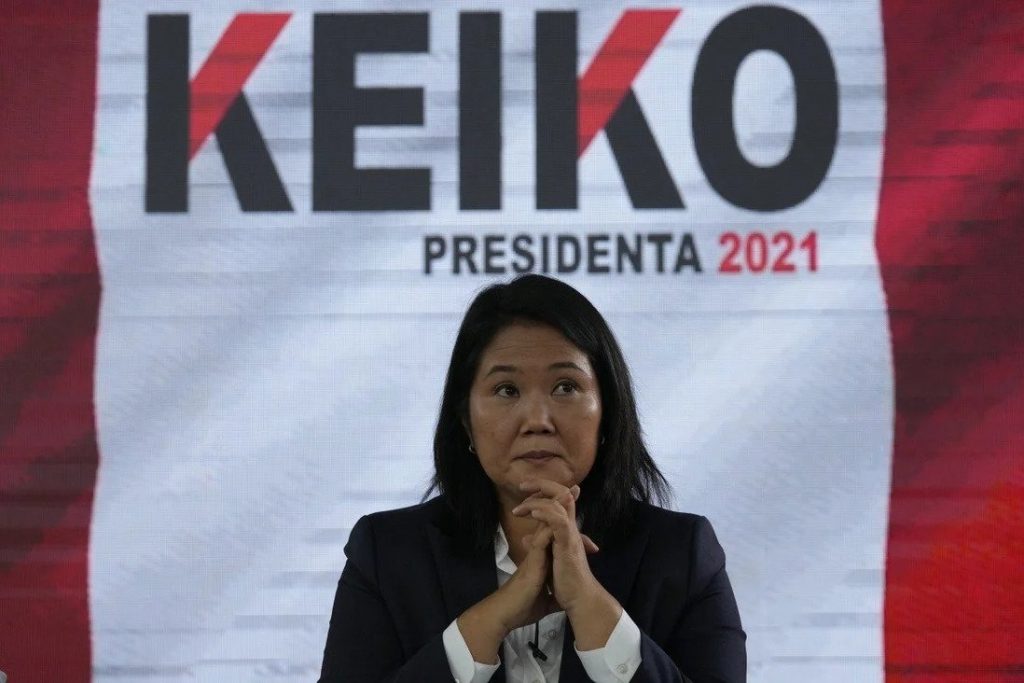The far-right Peruvian presidential candidate Keiko Fujimori has reiterated that she will not concede defeat this week, promising her supporters that “the election will be flipped”. This is despite the Peruvian electoral authorities declaring that 100% of the votes had been counted, granting victory to leftist candidate Pedro Castillo after the tight election saw him win with 50.125% of the votes against 49.875% for Fujimori.
Fujimori has claimed that there has been widespread voter fraud. In front of her supporters this week she declared that “we trust the authorities, yes, but we have more trust in the popular will. We know that when these irregularities are analysed, they will vindicate our claims”. Fujimori faces a fourth prison sentence for corruption. However, she would not have to face trial until after her term if she became president.
The election authorities are currently studying all the accusations of fraud made by Fujimori. Most of the allegations have already been resolved because they were submitted too late, whilst those submitted before the 11th of June deadline have so far been shown to be baseless. It seems that Fujimori’s tactic is to cast as much doubt and confusion around the election as possible in the hope that Castillo will not be sworn in as president before the end of July, which would trigger a constitutional crisis as new elections would need to be held.
It is unlikely that Fujimori will be able to drag this process on until the end of July. However, by utilising the country’s ruling class, Fujimori seeks to cast doubt on Castillo’s legitimacy and create anti-socialist sentiment among the Peruvian masses. Electronic billboards have begun springing up around Fujimori strongholds in Lima warning that a Castillo presidency will cause ‘socialism leading to communism’, that ‘communism is poverty’ and that there is a need to ‘defend freedom and democracy’.
Despite this, it appears at least for now that her tactics are simply delaying the inevitable. Even Human Rights Watch and the Organisation of American States, once labelled the “Yankee Ministry of Colonies” by Fidel Castro, have openly declared that Castillo’s victory is legitimate. Similarly, the Presidents of Bolivia, Argentina, and Nicaragua have referred to Castillo as the ‘President-elect’.
It seems likely that the Peruvian ruling class and their allies in the US and Europe are currently willing to accept Castillo because he has moderated his policy programme since the election. His team has issued a document saying that “we have not considered nationalisation, expropriation, confiscation of savings exchange controls, price controls or import prohibitions in our economic plan”. Similarly, his team has recently declared that it would “respect the autonomy of the central bank, which has done a good job of keeping inflation low for more than two decades”. Whether Peru and Castillo’s international position will remain this favourable is yet to be seen.
Alec Smith, is a member of the YCL West Yorkshire branch




